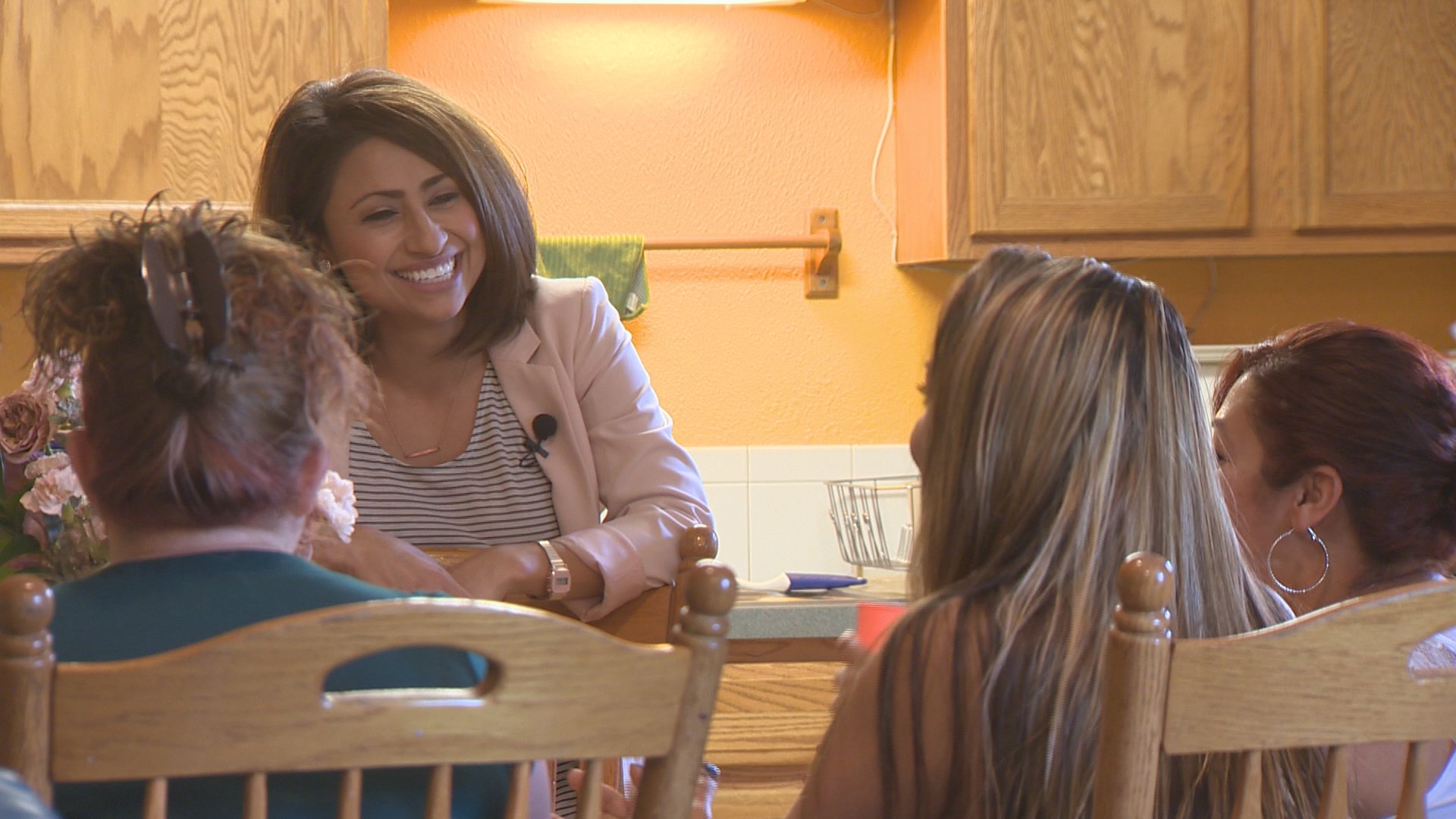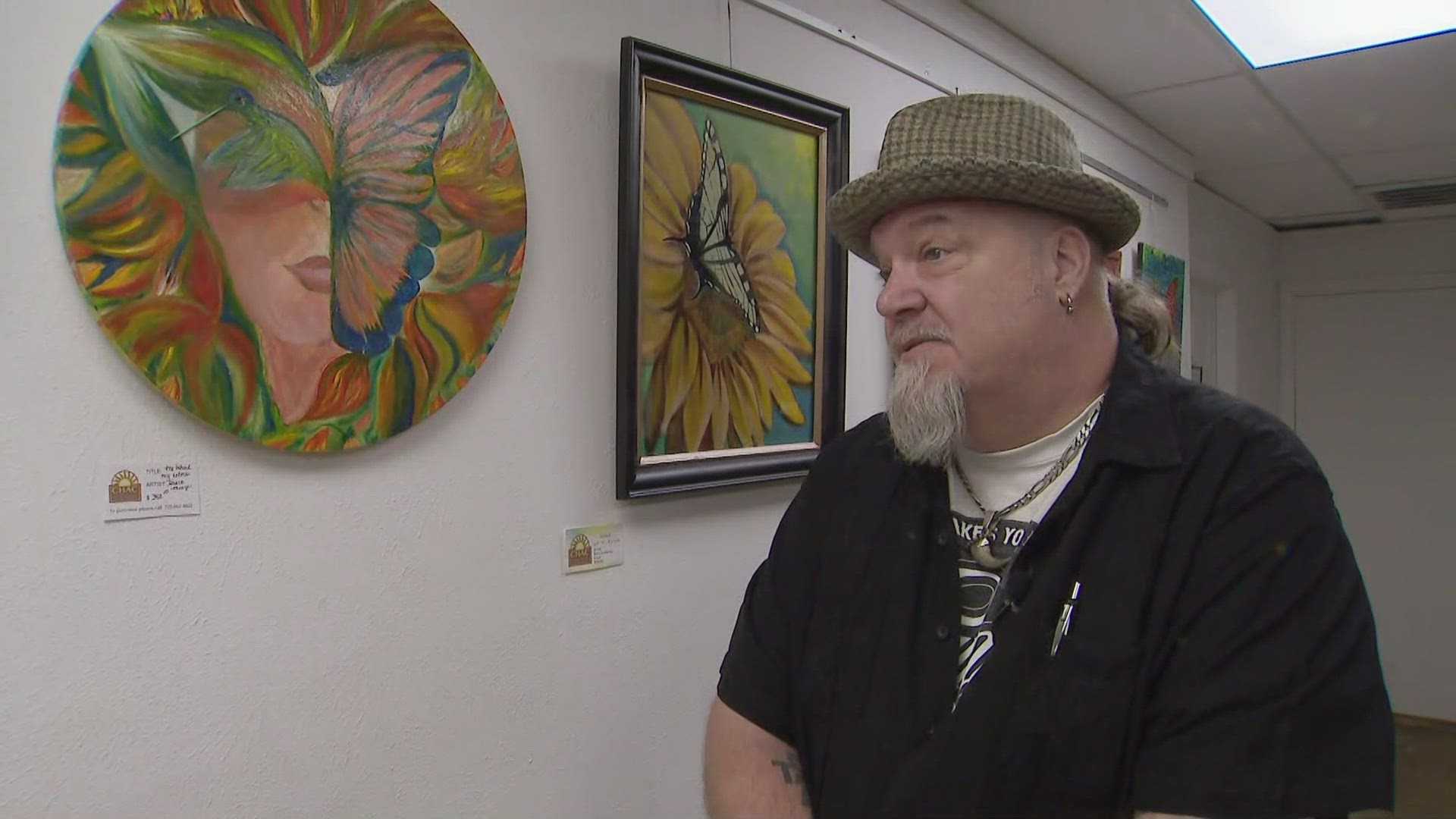KUSA - It took Maria quite a long time to realize that the only way to move forward was to take a step back.
Maria spent the better part of two decades homeless on Denver’s Colfax Avenue as a prostitute and a drug user.
“For me, it was to make money, to survive,” she said. “That was my black hole. That’s where I survived and that’s where I felt the safest.”
As Maria shares her story, it’s important to note that’s not really her name. She’s a victim of sexual assault and agreed to speak to 9NEWS if we concealed her identity.
“I did a lot of jail time. I broke the law a lot, and so I had to pay the consequences and I would get arrested and, you know, I wouldn’t go to court -- I was homeless,” she said. “I numbed myself a lot with drugs and alcohol. I’m talking all day, all night -- like, there wasn’t a break with that unless I got arrested. … There was a time in my life where I was doing literally years due to prostitution.”
You would think being a mom was enough to motivate Maria to get off the streets, but an addiction so powerful and a lack of self-esteem needs more than motivation to end a cycle that continued to spiral to deeper and darker place.
“It was hurtful. You feel lost inside -- mentally and emotionally, so it was just really hard to focus on what I needed to do to get myself together so I could get off the streets,” she said. “My family and my children were devastated that I couldn’t just get it in my head that I could do this. I hurt a lot of people that way and I just couldn’t figure it out. I just couldn’t get it. My mind was just so clouded with destruction that I just couldn’t get it.”
That is when Maria decided to take that step back so she could move forward.
“Constructive criticism comes at you when you’re sober and you have to look at yourself and it wasn’t easy for me at first,” she explained.
She discovered Street’s Hope, a Denver-area nonprofit that helps women like Maria get off the streets and transition back to a steady and healthy life -- all it takes is a long look in the mirror.
“I had a bunch of crack and I flushed it down the toilet and emptied all my alcohol in the sink,” Maria said. “It was beautiful. It was beautiful because I never realized that so many people could love me and not even know where I’ve been.”
Street's Hope
One of those people who showed Maria love and compassion was Executive Director Nina Martinez.
“She even had to give me some constructive criticism and things I had to look at about myself, but one thing with Nina, she don’t make you feel like she’s putting you down,” Maria said. “I could tell you that every time I see Nina or ran into Nina, because sometimes you don’t really see her that much, but when you do she has this great big smile and this positive attitude and she gives you a sense of hope.”
Nina joined Street’s Hope in 2011 as a graduate-level intern -- she knew she wanted to be in the nonprofit sector, but was she couldn’t have realized was how the organization would carve out the next five years of her career.
“I had no idea I would be in the role that I am being a young Latina and just finishing my master’s. I was really ambitious but I never thought I would be the executive director of a non-profit one day,” she said. “And not only that, but a non-profit that pours into women’s lives and restore them fully.”
Street’s Hope is unique in that it operates safehouse in the Denver area, accommodating up 10 women at any given time.
“We operate a one year program and in that one year, these women are working so hard to just reclaim their lives from the sex industry and really just put all the broken pieces back together,” Nina said. “So through her one year here, she’s working with a case manager, coming up with a treatment plan, and really just creating her own future and setting her own goals for that next year and beyond in life. She’s going through daily group therapy to working on trauma, addictions, self esteem, boundaries, communication -- and she’s also working really intensely on herself in individual counseling and just trying to work past all that brokenness as well. It’s a lot in a year.”
Nina said she has seen Street’s Hope, which was founded in 2004, change dramatically in the last few years.
“I will honestly say it was a challenge being young, being Latina and being female in the nonprofit sector, it was something that professionally and personally I really had to push through a lot of those barriers and really have my voice be heard,” she said. “It wasn’t just in community, it wasn’t just with other organizations -- it was with our donors and our supporters and our volunteers and just saying this is where I want to lead the organization and I hope that you will trust me enough to follow me and follow my leadership.”
As the organization continues to grow, Nina has carved quite a path for herself and for others, like Maria, who looks up to her.
“Even though she’s way younger than me, it does give me hope that -- a lot of it was from her building me up in her own way. It’s not too late. It's not too late. I could still be that Latina that could be productive and be productive and be citizen and give back, give back to where I came from,” Maria said.
“The ladies tell me that I’m a role model all the time. They’re very sweet. They just bless me with their presence and I think I get more from them than they get from me often times,” she said. “It’s been an amazing ride so far and it’s just been one that’s built my professionally as a woman and as a Latina and just that I’m able to give back to other women. It’s women empowering women, which is amazing.”


